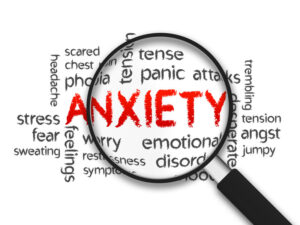Dr Norman
Claringbull
Psychotherapist
Counsellor
Psychologist
The Friendly Therapist
Call now for a free initial telephone consultation
Total confidentiality assured
In-person or video-link appointments
Private health insurances accepted
Phone: 07788-919-797 or 023-80-842665
PhD (D. Psychotherapy); MSc (Counselling); MA (Mental Health); BSc (Psychology)
BACP Senior Accredited Practitioner; UKRC Registered; Prof Standards Authority Registered
Blog Post – May 2014
Posted on April 25th, 2014
ANXIETY & STRESS
Here in the New Forest it looks like spring has sprung – at last. Even looking out over Southampton, we can see some hints of colour and growth. In such happier times it seems almost perverse to start talking about our anxieties and worries. However, we all get anxious; we all get stressed; we have all been there. 
The symptoms of anxiety can appear in the mind, (worry, fear, dread, irritability, etc.), or in the body, (palpitations, trembling, sweating, upset tummy, and so on). These days GPs are seeing more and more patients whose anxiety levels are worrying. About 10% of the population suffer from troubling levels of anxiety that are ‘clinically significant’ and about 4% of the population see a doctor about this problem.
Of course not all anxiety or stress is bad for you. It’s natural to feel worried about an urgent problem. On the other hand, if increased anxiety helps us to concentrate better and if increased stress ups our performance then that’s a good thing. Of course when our anxieties get too intense, when they go on for too long, when we find ourselves getting overly anxious or irrationally worried without any obvious cause, when anxiety disrupts our lives, then that’s unhealthy.
So, anxiety, (stress), is neither good nor bad. It is how it affects you that matters. Does it help or does it hinder? Is your level of anxiety OK for you or is it a problem? Anxiety becomes harmful when it starts to overwhelm your ability to cope with life. If stress gets too much to bear, then you can all too easily lose your ability to get by and to manage your life. That’s when you need help
So, how do you get help? The first rule has to be: ‘check with your Doctor’. This is because sometimes what seem to be anxiety symptoms might actually be the result of a physical illness. However, if your doctor tells you that you are generally fit then it is very likely that your symptoms are due to one of the anxiety disorders. That’s when you need to see a psychotherapist or a counsellor. In most cases the available psychological treatments are very effective and most patients start to experience some benefits in about 2 – 4 therapy sessions.
So, don’t put up with anxiety, (stress) – get help – the treatments work!
Remember
- Everybody gets anxious or stressed from time to time – it’s normal
- Low/moderate levels of anxiety or stress can be good for you and improve your performance at all sorts of tasks
- About 10% of the population experience levels of anxiety that are of ‘clinical concern’. That’s when it is starting to adversely affect their lives
- When the experience of anxiety is so severe as to disrupt your life, when it diminishes your ability to function, when it starts to take over your being, that’s when you need psychotherapeutic help
People suffering from excessive anxiety are said to have an ‘Anxiety Disorder’
The Anxiety Disorders include:
Generalised Anxiety Disorder – the most common
Social Anxiety Disorder – very common
Panic Disorder – affects a lot of people
Agorophobia – often misdiagnosed
Obsessive Compulsive Disorder – can be very pervasive
Phobias – some are just nuisances, some are very troublesome
Acute Stress Disorder – a common, temporary, reaction to trauma
Post Traumatic Stress Disorder – less common than you might think
Anxiety Treatments include:
Cognitive Behavioural Therapy – helps eliminate/reduce symptoms
Medication – helps control the symptoms
Counselling and psychotherapy – helps find the root causes
Psychological therapy – helps you to cope
Self-help training – learn how to manage by yourself
Exercise – gets those endorphins flowing
